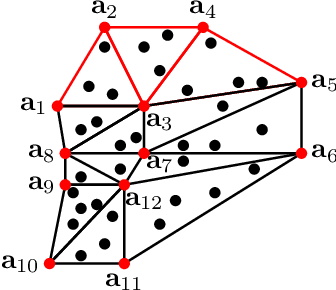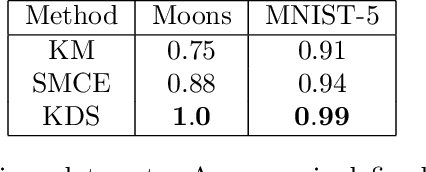Weighed $\ell_1$ on the simplex: Compressive sensing meets locality
Paper and Code
Apr 28, 2021


Sparse manifold learning algorithms combine techniques in manifold learning and sparse optimization to learn features that could be utilized for downstream tasks. The standard setting of compressive sensing can not be immediately applied to this setup. Due to the intrinsic geometric structure of data, dictionary atoms might be redundant and do not satisfy the restricted isometry property or coherence condition. In addition, manifold learning emphasizes learning local geometry which is not reflected in a standard $\ell_1$ minimization problem. We propose weighted $\ell_0$ and weighted $\ell_1$ metrics that encourage representation via neighborhood atoms suited for dictionary based manifold learning. Assuming that the data is generated from Delaunay triangulation, we show the equivalence of weighted $\ell_1$ and weighted $\ell_0$. We discuss an optimization program that learns the dictionaries and sparse coefficients and demonstrate the utility of our regularization on synthetic and real datasets.
 Add to Chrome
Add to Chrome Add to Firefox
Add to Firefox Add to Edge
Add to Edge